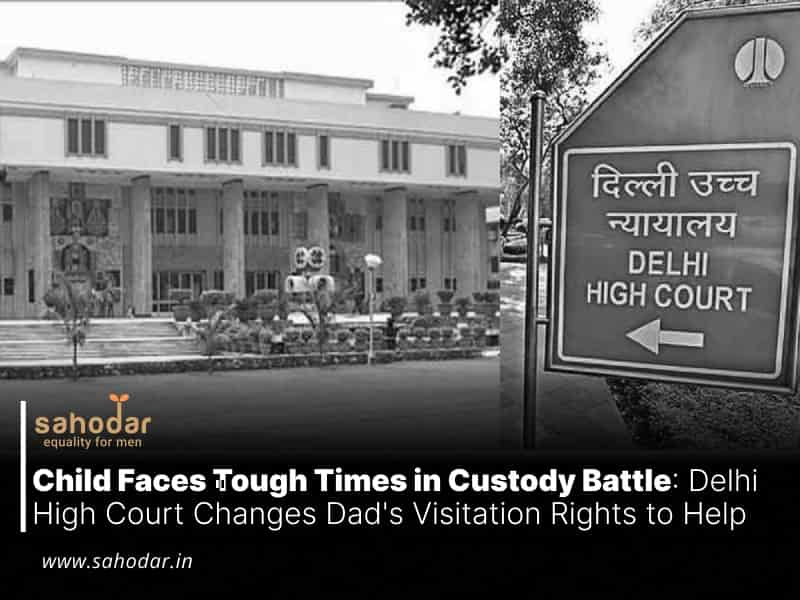“Even if the mother is less capable financially, she becomes no less competent to ensure the welfare of the child, and the father will still be under an obligation to ensure the financial well-being of the child.”
In a significant legal development, the Delhi High Court recently rendered a decision on an appeal under Section 19 of the Family Courts Act, 1984, concerning a family dispute. The appellant, the mother, challenged the judgment of the Family Court, South, Saket Courts, New Delhi, issued on 22-09-2022. The Family Court had previously declared both parents as joint guardians of a minor child, with custody granted to the mother and visitation rights to the father until the child reaches the age of eighteen.
A Division Bench, comprising Justices Suresh Kumar Kait and Neena Bansal Krishna, affirmed the Family Court’s decision but introduced modifications to the visitation rights granted to the father. The Court directed the mother to facilitate the child’s presence in the Family Court’s children’s room on specified Saturdays and mandated telephonic communication between the father and the child. This modified order is to remain in effect until the child reaches majority.
The legal dispute originated from the parties’ marital discord, resulting in their separation in 2009, with the mother awarded custody. The father initiated legal proceedings seeking formal appointment as the guardian, alleging the mother’s inadequacy in caring for the child. The mother contested these claims, asserting the father’s unsuitability based on behavioral concerns, lack of cultural refinement, and insufficient educational qualifications.
The appeal highlighted an incident on 15-08-2016, where the father’s actions led to the revocation of visitation rights. The appellant also emphasized the father’s failure to meet maintenance obligations over the preceding three years. The Court recognized the appellant’s exclusive custody since the child’s age of two and observed a lack of a genuine bond between the father and the child.
Addressing the child’s expressed reluctance to be in the father’s custody, the Court emphasized the child’s intelligent preference, considering approaching adulthood, as a crucial factor. Despite acknowledging the father’s superior financial standing, the Court found no evidence of financial constraints on the mother’s part impacting the child’s welfare.
Citing legal precedents, the Court underscored the inadequacy of financial status as the sole determinant in custody matters. It emphasized the obligation of both parents to contribute to the child’s financial well-being.
Considering the father’s default in providing maintenance, the Court affirmed the appellant’s effective management of the child’s affairs and granted custody to the mother. Visitation rights were specified, allowing an overnight stay every first Saturday to Sunday. Following a comprehensive analysis, the Court modified the custodial arrangement, directing the child’s presence in the Family Court’s designated children’s room on specified Saturdays and mandating weekly mobile communication with the father. This order will remain effective until the child reaches majority.

